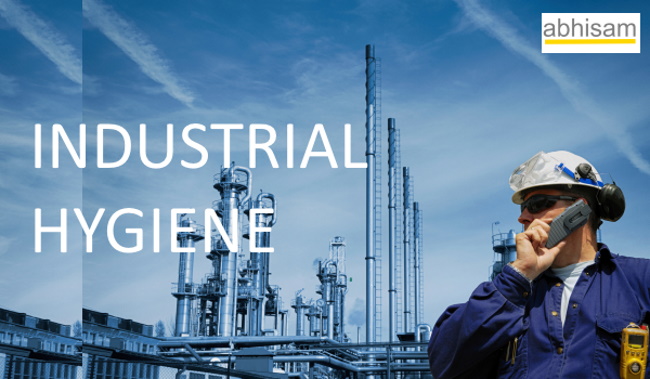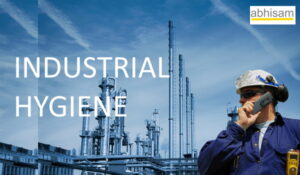There are several educational programs out there that can lead to you becoming a certified Industrial Hygienist, also known as a Certified Industrial Hygiene professional, or in some parts of the world as Occupational Hygienists.
Who is a certified Industrial Hygienist? Who is a certified Industrial Hygiene professional?
All of these terms mean the same thing- they refer to a professional with a scientific or engineering background, who has had formal training in Industrial Hygiene, either via an online course or similar in person course, plus some experience in industry.
Industrial Hygienist Skills
A good Industrial Hygienist must have the knowledge and skills related to the following:
1. Being able to effectively carry out worksite assessments
2. Able to anticipate hazards in the workplace
3. Must be able to Identify different types of workplace hazards that can adversely affect worker health and safety.
4. Must be able to evaluate hazards by studying their potential impact on worker health and safety. This involves knowing what to monitor, how to measure exposure and carry out calculations.
5. Must be able to devise hazard control measures such as Engineering Controls, Administrative controls and use of suitable Personal Protective Equipment. This may involve estimating and carrying out calculations for exposure, as well as determining the amount of ventilation required to evacuate harmful gases and vapors from the workplace.
6. Must be familiar with OSHA rules and regulations (if in the US) or other rules and regulations that apply in that part of the world.
Note: The Abhisam Industrial Hygiene training course will help you learn all of the above. It covers all the calculations that you would need to know in order to perform your job as an Industrial Hygienist.
Training and education play a key role in industrial hygiene. Knowledge of hazardous materials, potential injuries, and proper procedure are all essential to minimizing risks and protecting employees.
OSHA and Industrial Hygiene
In the United States, OSHA (Occupational Safety and Health Administration) takes Industrial Hygiene very seriously and has the power to penalize employers who do not follow OSHA rules and regulations. In fact about 40% of OSHA inspectors are Industrial Hygienists.
Companies must provide information to workers about health hazards associated with the job directly related to their work activities, as well as how they can protect themselves while on duty. Employers can easily train their employees on various Industrial Hygiene topics including the Abhisam Basic Industrial Hygiene course and the certified Industrial Hygiene Professional course.
Industrial Hygiene training programs
In addition to educating workers, employers should ensure that safety protocols are regularly reviewed and tested for accuracy. Comprehensive training programs should be established so that employees fully understand the nature of the hazards they face, the control measures needed for working safely, and what steps need to be taken if an accident occurs.
Employers need to employ trained Industrial Hygiene professionals who have the knowledge, skills and ability to effectively implement the principles of Industrial Hygiene in the workplace.

